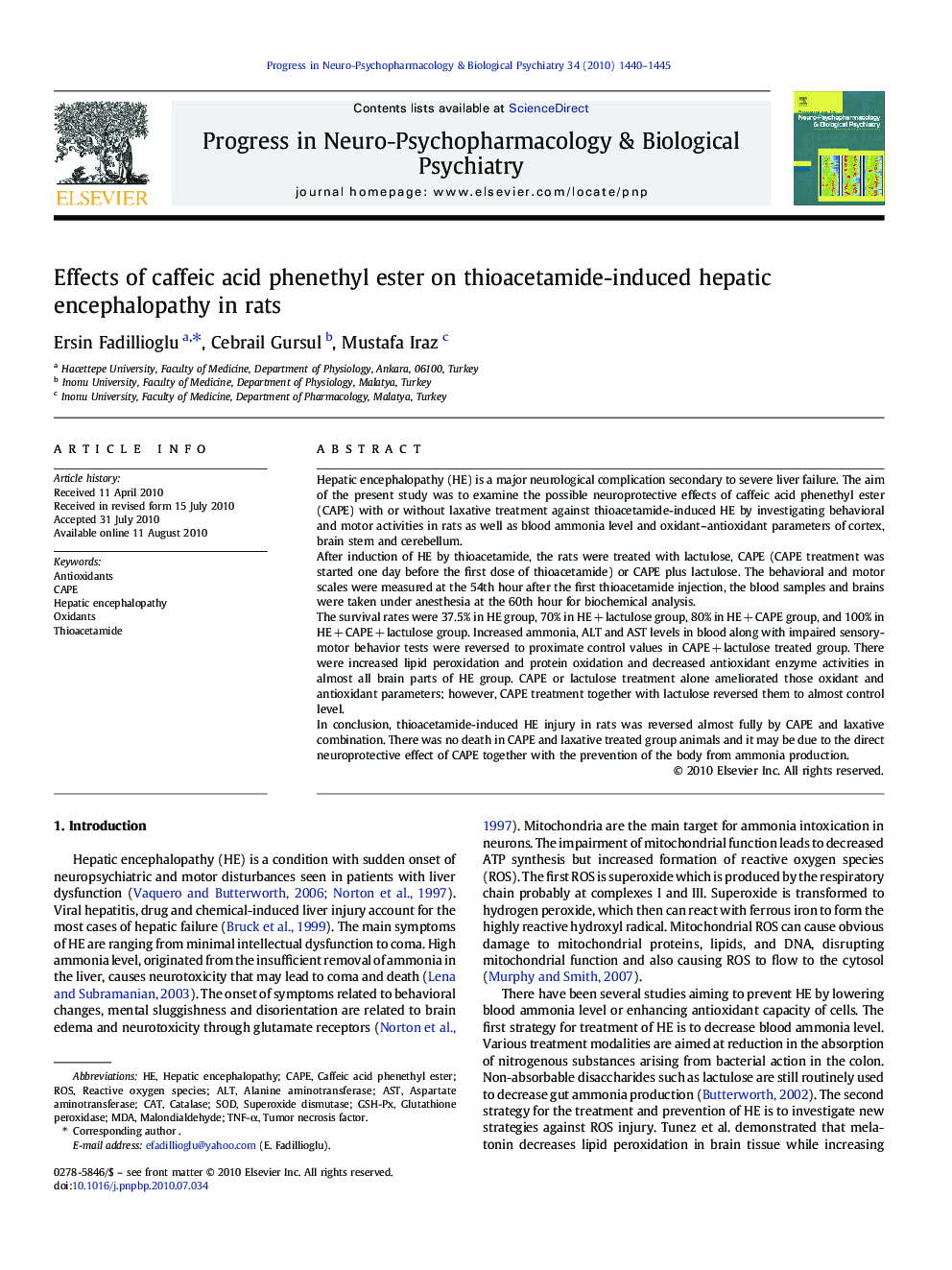| کد مقاله | کد نشریه | سال انتشار | مقاله انگلیسی | نسخه تمام متن |
|---|---|---|---|---|
| 2565143 | 1128051 | 2010 | 6 صفحه PDF | دانلود رایگان |

Hepatic encephalopathy (HE) is a major neurological complication secondary to severe liver failure. The aim of the present study was to examine the possible neuroprotective effects of caffeic acid phenethyl ester (CAPE) with or without laxative treatment against thioacetamide-induced HE by investigating behavioral and motor activities in rats as well as blood ammonia level and oxidant–antioxidant parameters of cortex, brain stem and cerebellum.After induction of HE by thioacetamide, the rats were treated with lactulose, CAPE (CAPE treatment was started one day before the first dose of thioacetamide) or CAPE plus lactulose. The behavioral and motor scales were measured at the 54th hour after the first thioacetamide injection, the blood samples and brains were taken under anesthesia at the 60th hour for biochemical analysis.The survival rates were 37.5% in HE group, 70% in HE + lactulose group, 80% in HE + CAPE group, and 100% in HE + CAPE + lactulose group. Increased ammonia, ALT and AST levels in blood along with impaired sensory-motor behavior tests were reversed to proximate control values in CAPE + lactulose treated group. There were increased lipid peroxidation and protein oxidation and decreased antioxidant enzyme activities in almost all brain parts of HE group. CAPE or lactulose treatment alone ameliorated those oxidant and antioxidant parameters; however, CAPE treatment together with lactulose reversed them to almost control level.In conclusion, thioacetamide-induced HE injury in rats was reversed almost fully by CAPE and laxative combination. There was no death in CAPE and laxative treated group animals and it may be due to the direct neuroprotective effect of CAPE together with the prevention of the body from ammonia production.
Research Highlights
► Thioacetamide induces hepatic encephalopathy (HE) in rats.
► Thioacetamide can induce the abnormalities in behavioral and motor functions in rats.
► CAPE and/or laxative treatments can adequately recover those abnormal changes.
► A couple of rats were died after the procedure of thioacetamide-induced HE.
► There was no deaths related to HE in CAPE and laxative treated group.
Journal: Progress in Neuro-Psychopharmacology and Biological Psychiatry - Volume 34, Issue 8, 1 December 2010, Pages 1440–1445